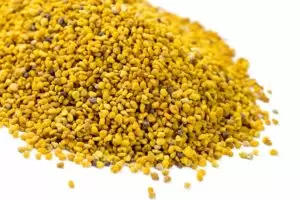
A palynologist studies fossilized fungi spores and plant pollen, and their relationships within an environment.
What Does a Palynologist Do?
The word palynology comes from the Greek word translated as “sprinkled”. Many plants rely on insects to pollinate, but not all. They produce a small number that tends not to turn up in the archaeological record. Others rely on processes of meteorology such as the wind to carry them away to other related plants in order to reproduce. These plants and fungi spread more pollen and fungi than they would need to reproduce. It's a matter of numbers and so the overwhelming majority of pollen and spores do not become plants. They settle in other environments. In some cases, they will land in areas conducive to preservation such as riverbeds and in peat bogs. Their survival means that we can study them to determine a number of things. This is the role of the palynologist.
Palynologists collect and study pollen and spore samples from areas where they are likely to survive in high numbers. From these samples, we can derive a number of things - genetic changes of a plant over time (either natural changes or agricultural crossbreeding), their distribution and even the ecological history of an area. Pollen and spores can be great indicators of local and global climate change. Most plants will grow in a narrow range of ecological areas. Pollen from wetland plants found on a dry plain will indicate a much wetter past. Sudden appearance or absence of a certain pollen or spore can build pictures of natural changes in local topography, natural disaster, anthropogenic change (such as agriculture) and build an archaeological or palaeoclimate record.
Where Does a Palynologist Work?
Palynology is a small and important niche within the area of ecology, human geography and landscape archaeology. Nearly all will work in labs, sometimes for university departments and sometimes for independent research services. The former will engage in academic research, the latter may be asked to produce site reports where an ecological or archaeological report is legally required ahead of development. The skills are so niche that they will often be consulted for a variety of different project types always with the same intended goal - to identify the found pollen or spore. Whether they are examining the genetic structure for evolutionary purposes or for identification in order to construct an ecological history of a site, their tools and methods will be the same. Most who enter into this career will find they split their time between fieldwork collection and working in labs and offices. They may be called on to write reports, engage in primary research or contribute towards data in research papers.
Their skills are also required in law enforcement. When evidence is found in a certain location (such as a body), the prosecuting body needs to determine the length of time the evidence was deposited there and whether it had been in another location.
What Is the Average Palynologist Salary?
This is a highly-skilled niche area requiring a degree of qualification and expertise. This means that the average salary is high even for an environmental science type role. According to the BLS, the median salary for palynologists, which fall under the broader BLS category of microbiologists, was $84,400 as of May 2020. The top 10% in this field earned more than $156,360 during this time.*
Palynology Jobs & Job Description
A niche segment of geoscience, palynologists share some job duties with ecologists and archaeologists. A palynologist at the beginning of his or her career may have the following job description:
- Investigate the composition, structure or history of pollen or spores through the collection, examination measurement or classification of samples collected
- Assist in field work by collecting and cataloguing samples from the field
- Conduct laboratory testing of samples collected in the field and log results
- Analyze data using computer programs and statistical models
- Collaborate on the communication of research findings by writing research papers or participating in conferences
An established palynologist may take on more of a managerial role by acting as a research lead or senior advisor. His or her job description may include:
- Supervise junior scientists and oversee their research tasks
- Maintain high level of quality in projects
- Develop project goals and parameters and leading data collection and analysis
- Produce technical documents like proposals and presentations for stakeholders
- Write grant proposals to secure funding for research projects
What Is the Job Demand for Palynologists?
The job demand for palynologists is projected to increase by 5 percent between 2020 and 2030.*
What Are the Education Requirements to Become a Palynologist?
Palynology is a form of environmental biology, a science subject requiring a high level of education. High school students should ensure they attain good grades in chemistry and/or biology and math to ensure they are eligible to apply for a relevant degree course. College students have a number of degree choices available to study. These are wide ranging from archaeology and anthropology to microbiology, chemistry and botany to geography and ecology. In each case, the student should choose minors and electives that complement their choice of degree and relating to these subjects.
Due to the small number of openings available and the high level of lab work and analysis, most researchers in the field of palynology will require a doctorate regardless of whether or not they intended to enter into a career in teaching. It is usually acceptable to continue to follow the course of study that began with the bachelor's degree in the master's degree, ensuring that all project work mixes the various elements of the study of palynology. The small number of Federal government jobs (such as at the EPA and NOAA) will certainly require doctoral study.
Other Degrees Related to Palynology
What Kind Of Societies and Professional Organizations Do Palynologists Have?
Palynology is a global discipline with some important organizations.
- The Palynological Society: Once known as the American Association of Stratigraphic Palynologists, they were founded to promote the science of palynology in the public sphere
- International Federation of Palynological Societies: This is the organization that brings together the many disparate palynological organizations around the world, promoting cooperation and knowledge dissemination
- International Organisation of Palaeobotany: Although dedicated to the study of ancient plant remains, they are responsible for organizing the annual palynology congress
*2020 US Bureau of Labor Statistics salary figures and job growth projections for microbiologists reflect national data not school-specific information. Conditions in your area may vary. Data accessed September 2021.





